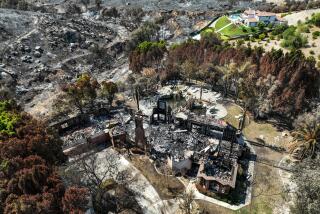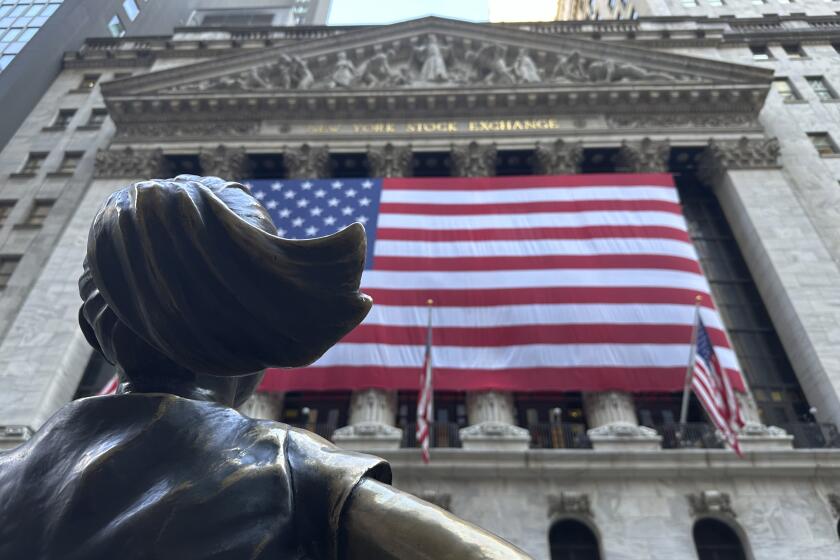WAR REACTION : Stocks Advance in Tokyo, Other Markets Abroad
Japan’s financial markets reacted today with cautious optimism to reports of early allied success in the ground war against Iraq, with stock prices rebounding modestly from a three-day slump and the dollar gaining strength.
The Nikkei index, an average of 225 shares, reached 26,161.50 by early afternoon, 258.69 points (1%) higher than Friday’s close. It was the first rebound in three trading days.
The dollar was trading around 132.20 yen in afternoon Tokyo activity, up 1.35 yen from where it ended last week in Tokyo but just slightly higher than its close in New York trading Friday.
Other Asian markets were mixed in early-afternoon trading, showing that caution prevailed despite the positive news from Kuwait:
* In Singapore, the Straits Times stock index was off 2.35 points to 1,408.10 around midday. Meanwhile, in Hong Kong the Hang Seng index was up 2 points to 3,477.00. It had been off 22 points early on.
* The volatile Taiwanese market reacted with greatest optimism, sending the weighted index of all stocks there up 65.94 points, or 1.3%, to 5,012.46 in afternoon trading.
* The Australian market was up slightly in early trading. The All-Ordinaries index on the Sydney exchange gained 9.7 points to 1,397.00.
* Gold dropped $2.84 an ounce in Hong Kong, opening at $358.71.
Although news from the Gulf triggered broad-based buying at the Tokyo Stock Exchange, enthusiasm was muted somewhat by concern over the stronger dollar and a potential for higher interest rates should the U.S. economy recover from its recession sooner than had been expected, observers said.
“The worst disaster scenarios have been pretty much laid to rest,” said Jan VanDenBerg, an economist with Merrill Lynch Japan Inc. “But the good news also has been discounted by the markets, and I think the Japanese are looking ahead at some of the negative aspects.”
In contrast, a bullish rally in Tokyo greeted initial news of the beginning of the air war in mid-January. But that was largely owing to relief that the United States was taking decisive action and that oil prices were dropping, VanDenBerg noted.
This time, oil prices were already low, and more attention was being paid to forecasts for economic recovery and monetary policy.
The potential for lower interest rates in Japan was weighed against concern about higher rates in the United States bolstering the dollar, which in turn can exacerbate trade imbalances and economic friction.
Kozaburo Sumikura, a director at Japan’s National Securities Co., told the Nikkei News Service that he expects market sentiment to move on to other factors besides the Gulf War, such as the Bank of Japan’s easier credit stance.
Sumikura predicted that optimistic buying would center on shares in contractors, expected to benefit from demand for their services in the post-war reconstruction of the Middle East.
Yet VanDenBerg cautioned that Japanese contractors may not benefit from reconstruction orders as much as their foreign rivals because of “political damage” caused by Japan’s distancing itself from the allied cause. Japan declined to contribute militarily to the multinational forces, citing constitutional constraints, although it pledged $11 billion in financial support.
Times Staff Writer Tom Petruno in Los Angeles contributed to this report.
* MARKET BEAT: Columnist Tom Petruno gauges Wall Street’s reaction to the ground war. D5.
More to Read
Inside the business of entertainment
The Wide Shot brings you news, analysis and insights on everything from streaming wars to production — and what it all means for the future.
You may occasionally receive promotional content from the Los Angeles Times.






